One “heated” debate in the baked potato community is whether you should wrap your spuds in foil. Even though foil isn’t an “ingredient” per se, it will alter your tater’s texture. It’s essential to know how foil affects baked spuds so you could adjust to your “potato preferences.” If you’re curious whether foil makes the best baked potato, then you’ve got to read the “steamy” info below!
Most pro chefs don’t recommend wrapping your baked potatoes in aluminum foil. While it’s not technically wrong to use foil, you won’t get to enjoy the contrast between a soft, fluffy interior and crunchy skin. Plus, since foil traps moisture, it could make your potatoes soggy. However, if you prefer “steamed” potatoes, wrapping them in foil might be the way to go.
Baking potatoes may seem simplistic, but many factors could impact this side dish. Please keep reading to find out more about baking brilliant potatoes—with or without the foil!
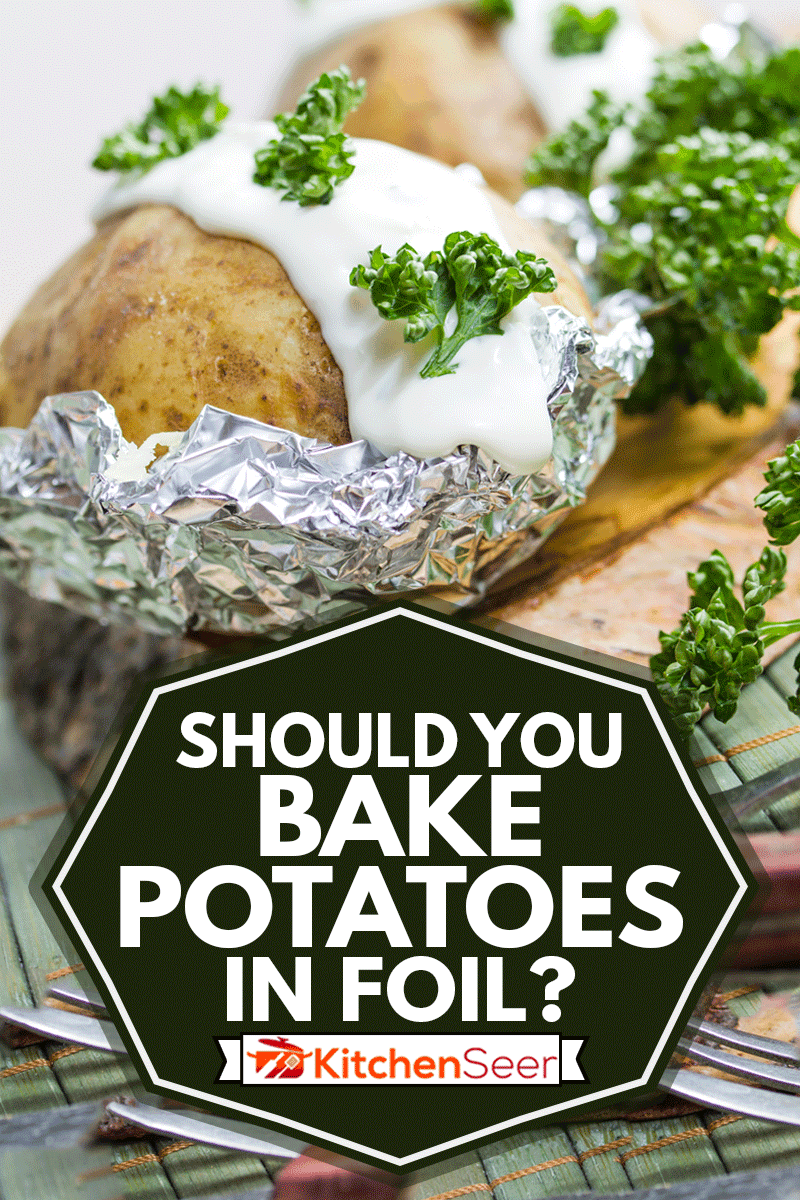
Should You Bake Potatoes In Foil? – Why Most Chefs Say “No”
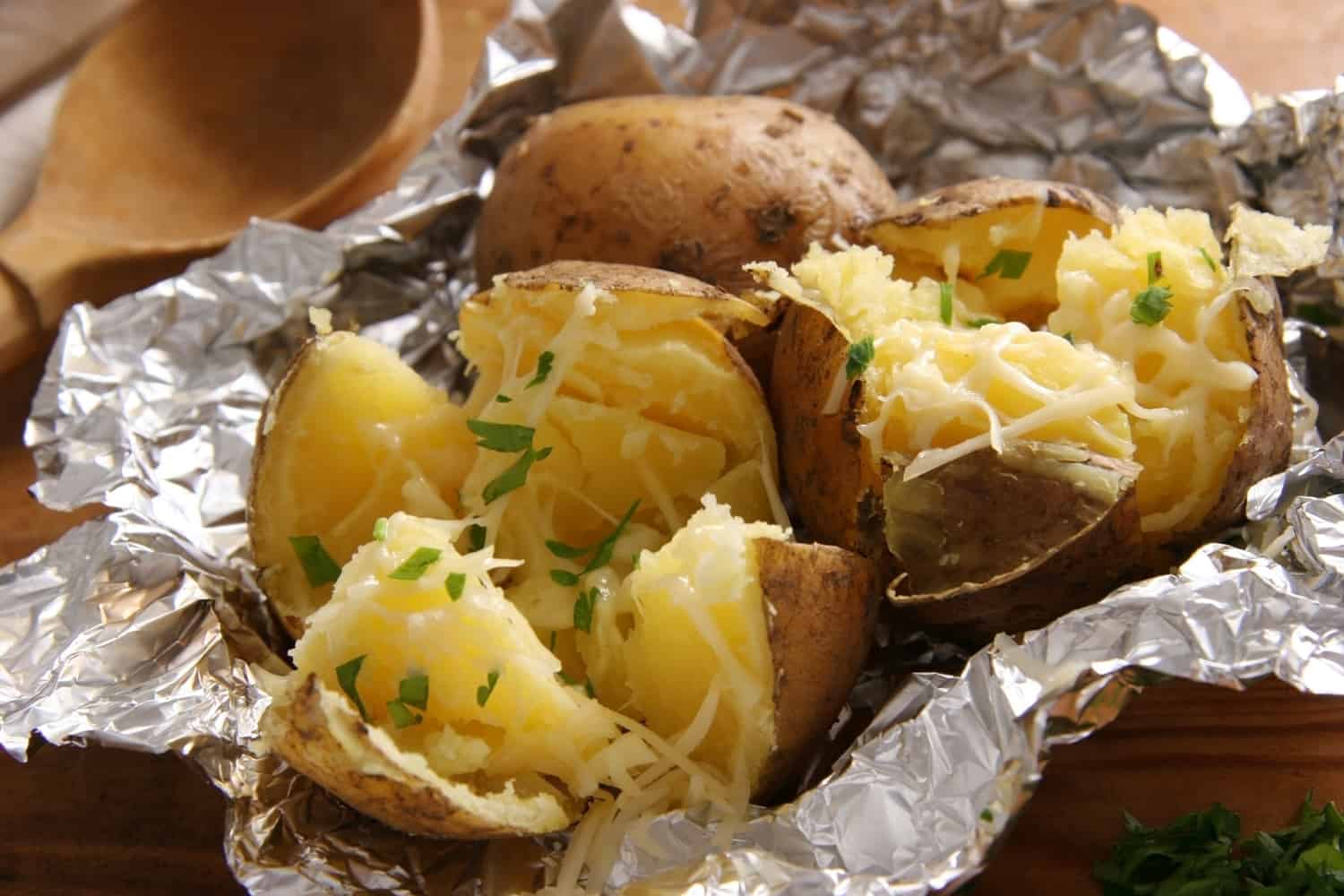
There’s no law banning you from baking potatoes in foil, but the majority of chefs don’t recommend it. The main reason people pooh-pooh aluminum foil has to do with your potato’s sensitive skin.
Since foil does a great job transferring heat and trapping moisture, it will steam your starchy spuds’ skin. So, if you’re not a fan of chomping on soft and mushy potatoes, using foil isn’t the way to go.
Instead, most chefs recommend rubbing your pre-poked and pre-washed potatoes in olive oil and salt before popping them in the oven. Without the added layer of foil, your potatoes won’t enjoy a “steam bath,” which translates to flavorful, crispy skin.
Again, it’s not “wrong” to bake potatoes in aluminum foil. If you prefer your potatoes on the softer side, then wrapping them in aluminum foil may be the right choice for you. The only way to figure out your preferred baked potato is to have a taste test!
Can You Wrap Potatoes In Foil Ahead Of Time?
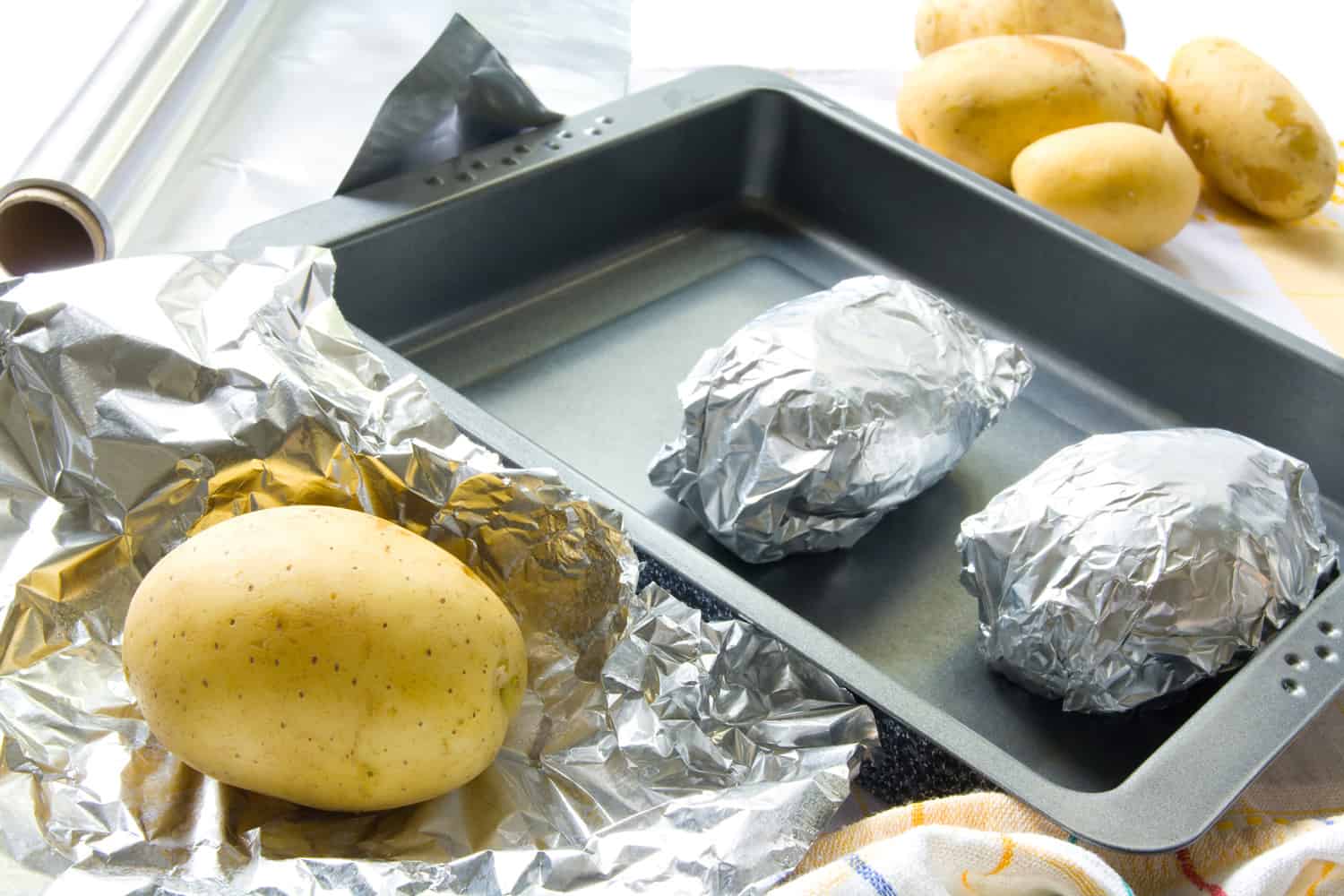
According to the official Idaho Potato Blog, it’s OK to wash and wrap uncooked potatoes one night before baking them. However, these “potato pros” aren’t proponents of using aluminum foil. According to the Idaho potato experts, you should only use aluminum foil to keep your potatoes warm before serving.
It’s also worth noting that potatoes baked in foil have an increased risk of containing the botulism toxin. While rare, this bacterium could thrive in an environment without oxygen. For more info on the risk of foodborne illness, please read the section below.
Is It Safe To Wrap Baked Potatoes In Foil?
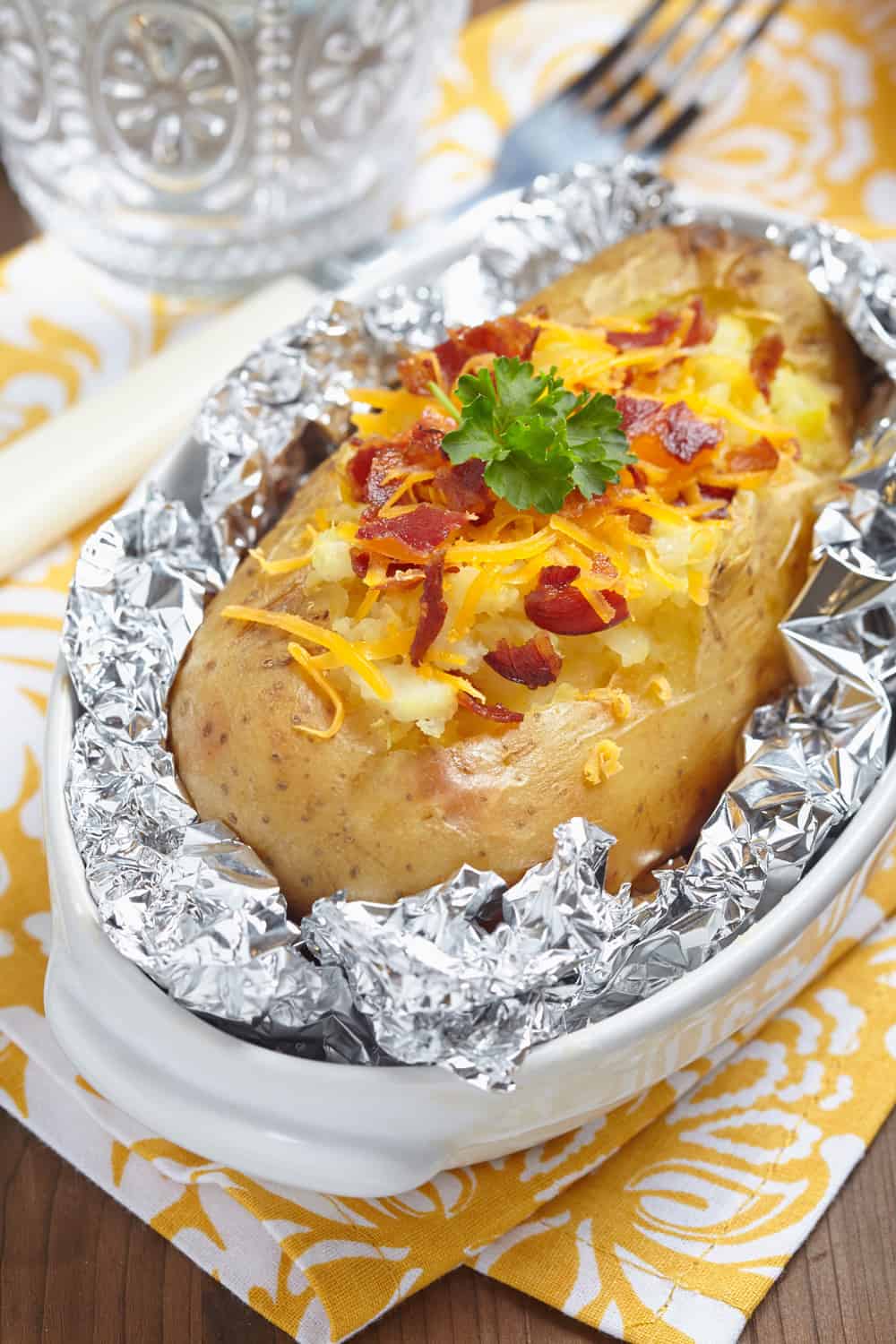
While baking with aluminum foil is generally considered safe, there is a slight risk of foodborne illness. In particular, you have to be careful of Clostridium botulinum (aka the botulism toxin).
Although this bacterium is rare, it’s one of the deadliest toxins known to man. Since botulism only thrives in oxygen-free environments, it’s most commonly reported in canned goods. However, since foil seals off oxygen, it’s easier for the botulism toxin to thrive on baked potatoes. This is especially true if you leave your potatoes in the aluminum foil at room temperature for a long time.
For your safety, health experts recommend eating any potatoes wrapped in foil no more than two hours after baking them. If you’re not going to eat your potatoes right away, it’s better to place them in the refrigerator and re-heat them later.
Of course, you should also give your spuds a good scrub before cooking them. Be sure to use a handy potato scrubber to get rid of all that dirt.
Find out more on this Amazon link.
Does Wrapping Potatoes In Foil Make Them Cook Faster?
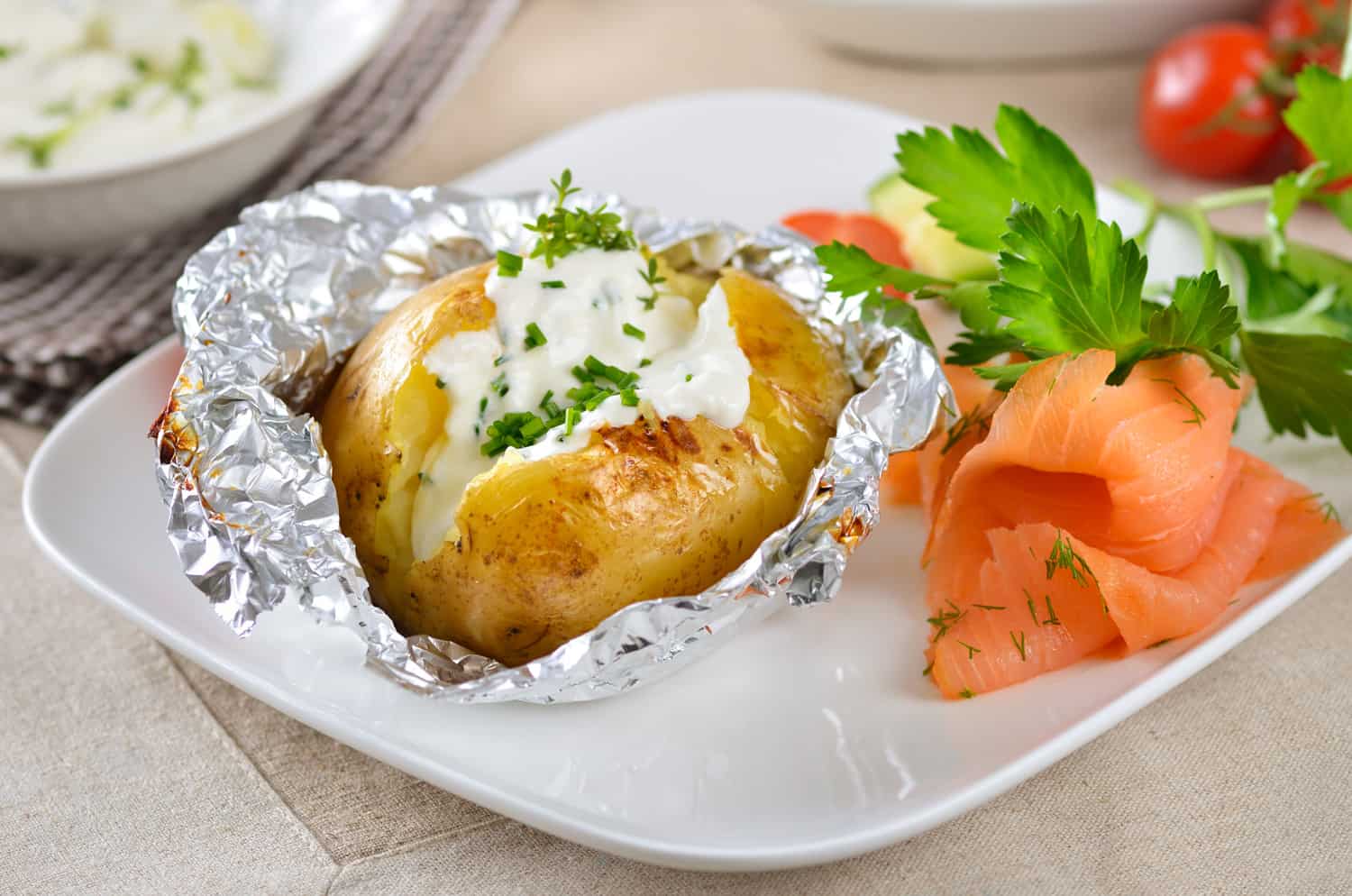
One advantage people assume foil-wrapped potatoes have is a faster cooking time. On the face of it, this makes perfect sense. Aluminum foil helps conduct and trap heat, which should warm your potatoes faster—right?
In reality, aluminum foil doesn’t speed up the cooking process. In fact, some potato experts believe foil could slow your potato’s heating time. Since you have to wait for the foil to heat up before your potato starts baking, it could slightly increase baking time.
Honestly, there’s no scientific data on whether aluminum-wrapped potatoes cook faster or slower than non-wrapped potatoes. However, most anecdotal reports suggest it doesn’t make a huge difference.
At What Temperature Do You Bake Potatoes?
There’s no official temperature for baking potatoes, but most recipes recommend 425° F – 450° F. Generally, it will take between 40 – 60 minutes for your potatoes to bake at this temperature. Please don’t forget to turn your potatoes over half-way through for even heat distribution.
If you’d like to see how the pros bake their spuds, check out this foolproof recipe by America’s Test Home Kitchen:
How Do You Bake A Lot Of Potatoes At Once?
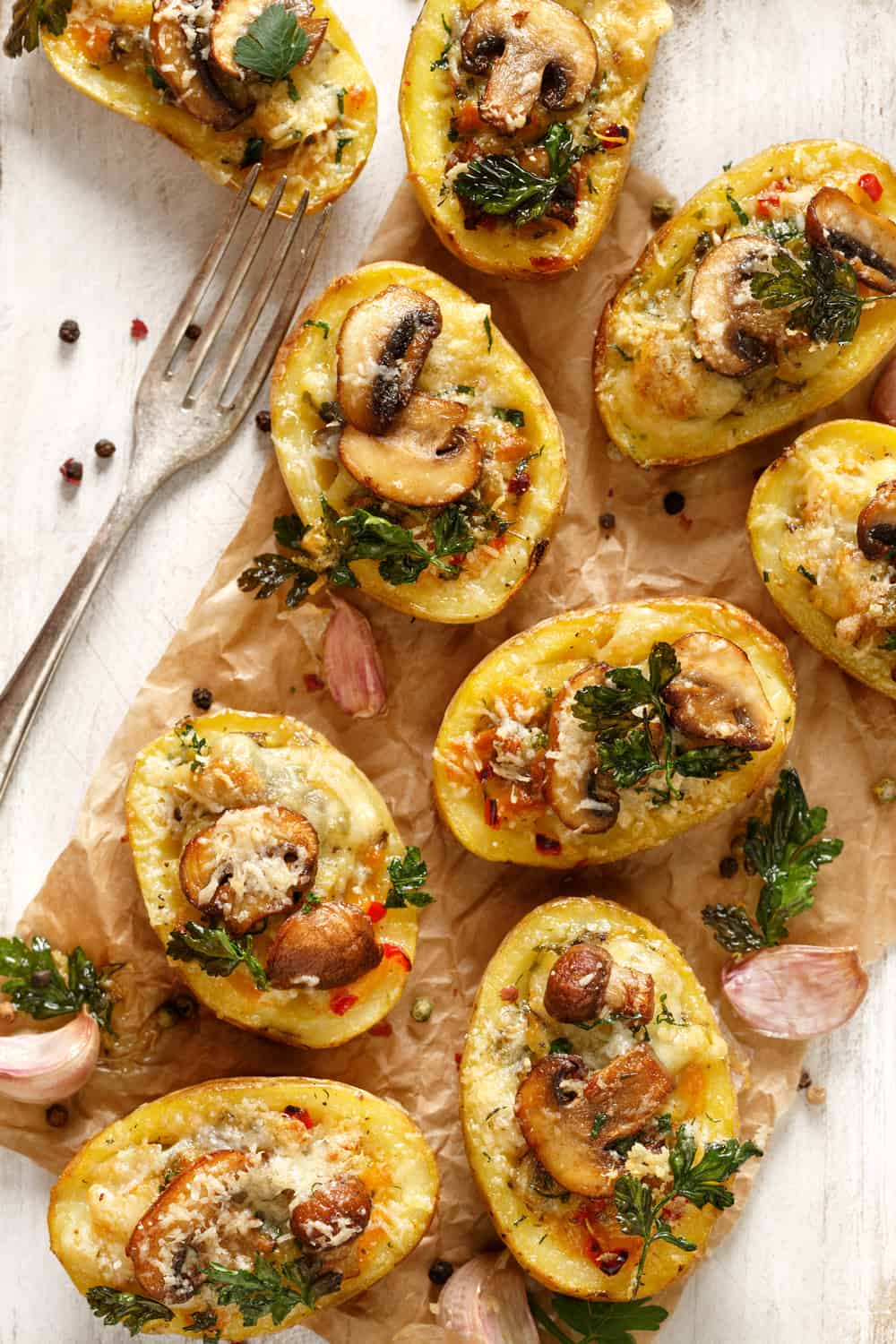
If you’re cooking a ton of potatoes for a big gathering, you must ensure your spuds are all roughly the same size. Obviously, similarly-shaped potatoes will bake at a steady rate, which reduces the risk of under-cooked taters.
As you’re cooking your first batch of potatoes, consider filling a large cooler with hot water. Once the potatoes are done, toss the water and add your potatoes to the warm cooler. Your baked potatoes should remain warm for at least six hours. Of course, you could also re-heat your potatoes for a few minutes beforehand if you find they’re too chilly.
Find out more on this Amazon link.
To make your life even easier, you could freeze your baked potatoes a few nights beforehand. After your baked potatoes have cooled, wrap each one in plastic wrap and place them in separate airtight freezer bags. Next, put them in the freezer and re-heat within about 6 – 8 months.
If you want to learn more about using plastic bags in the freezer, be sure to read our previous post, “Are Ziploc Bags Safe For Food Storage?”
How Do You Know When A Baked Potato Is Done?
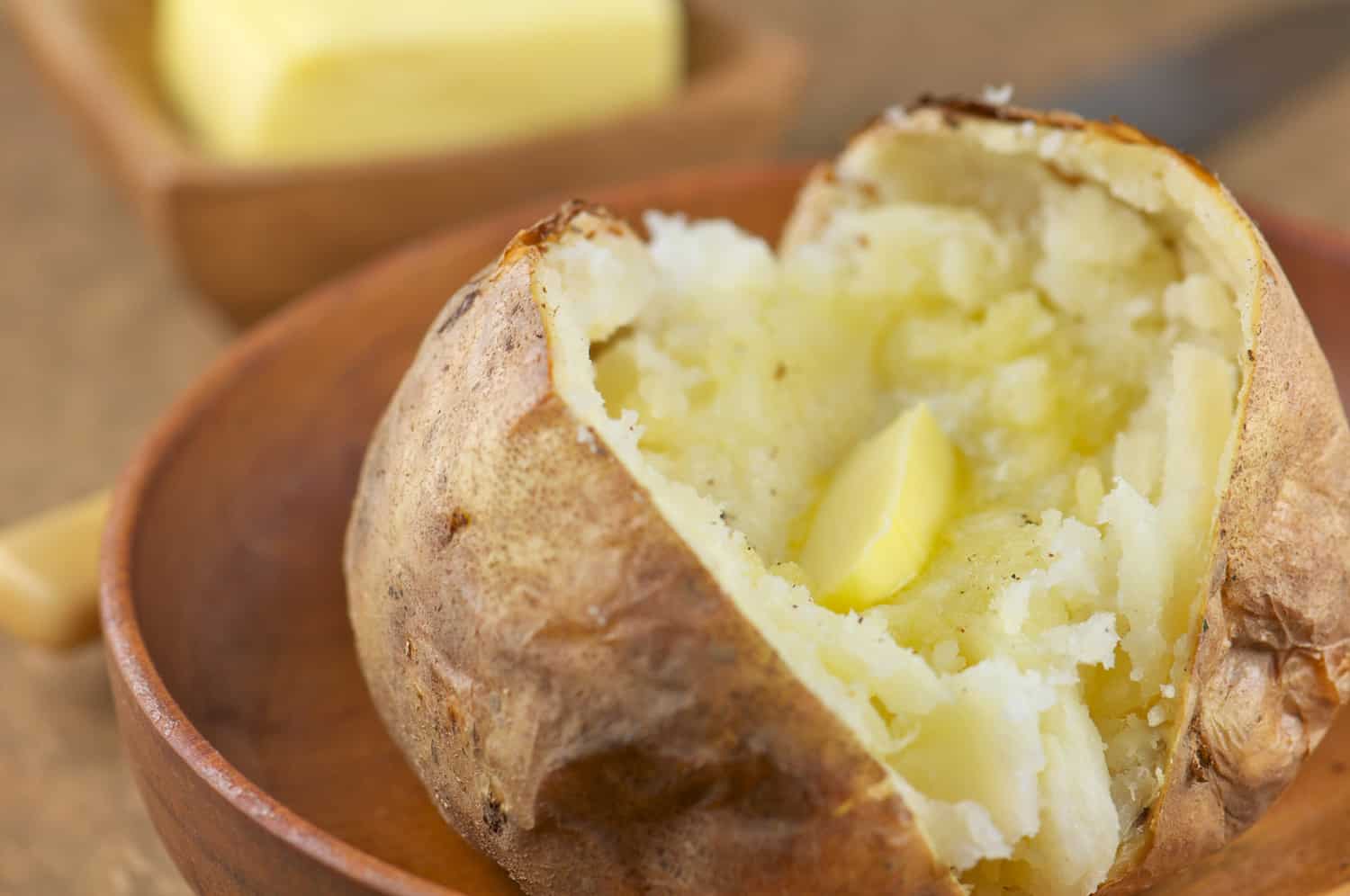
Most people use the trusty "poke method" to test whether their potato is done. To do this, grab a fork and stab the center of your warm baked potato. You should be able to slide your fork easily through the center when your potato is done. If you notice any toughness, you should put it in the oven for another 5 – 10 minutes.
While this common technique is useful, there is a more scientific way to gauge your potato’s doneness. For instance, did you know you could use a meat thermometer to test your baked potato? Ideal baked potatoes should register 210° F.
Find out more on this Amazon link.
If you want to be extra sure your potato is done, you could give your spud a gentle press in the center—with your oven mitts on, of course! A good baked potato should feel soft and a little squishy as you apply pressure.
FYI: if you’re planning on eating your baked potato with a classic seared steak, you may be wondering how to check your meat’s doneness. Be sure to read through our post entitled, “Which Oil Is Best For Searing Steak?” for all the “juicy” details!
Want More Tater Tips (Or Air-Fried Chips?) – Check Out KitchenSeer’s Other Potato Posts!
Now that you know how to bake potatoes like a pro, you may be wondering how else to use this versatile veggie. Luckily for you, KitchenSeer has many articles on how to put your spuds to good use. For instance, be sure to check out this previous post on how to use your food processor to slice potatoes.

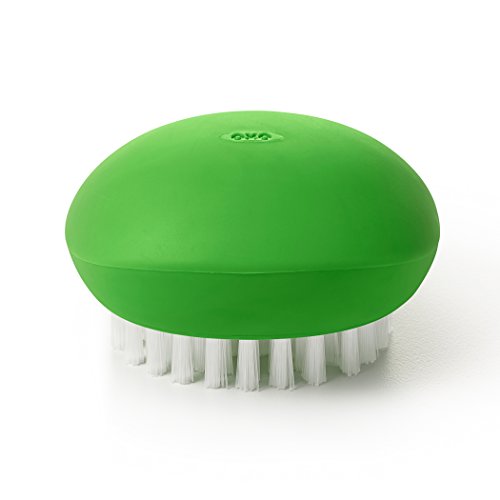


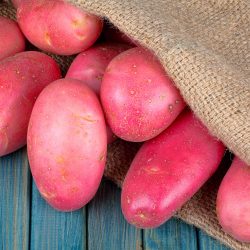
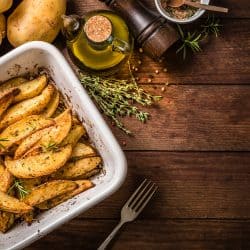

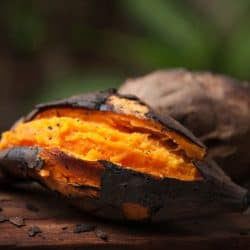
![close view inside hot operational household, Can You Bake With Aluminum Foil? [Is It Safe?]](https://kitchenseer.com/wp-content/uploads/2022/11/close-view-inside-hot-operational-household-250x250.jpg)
